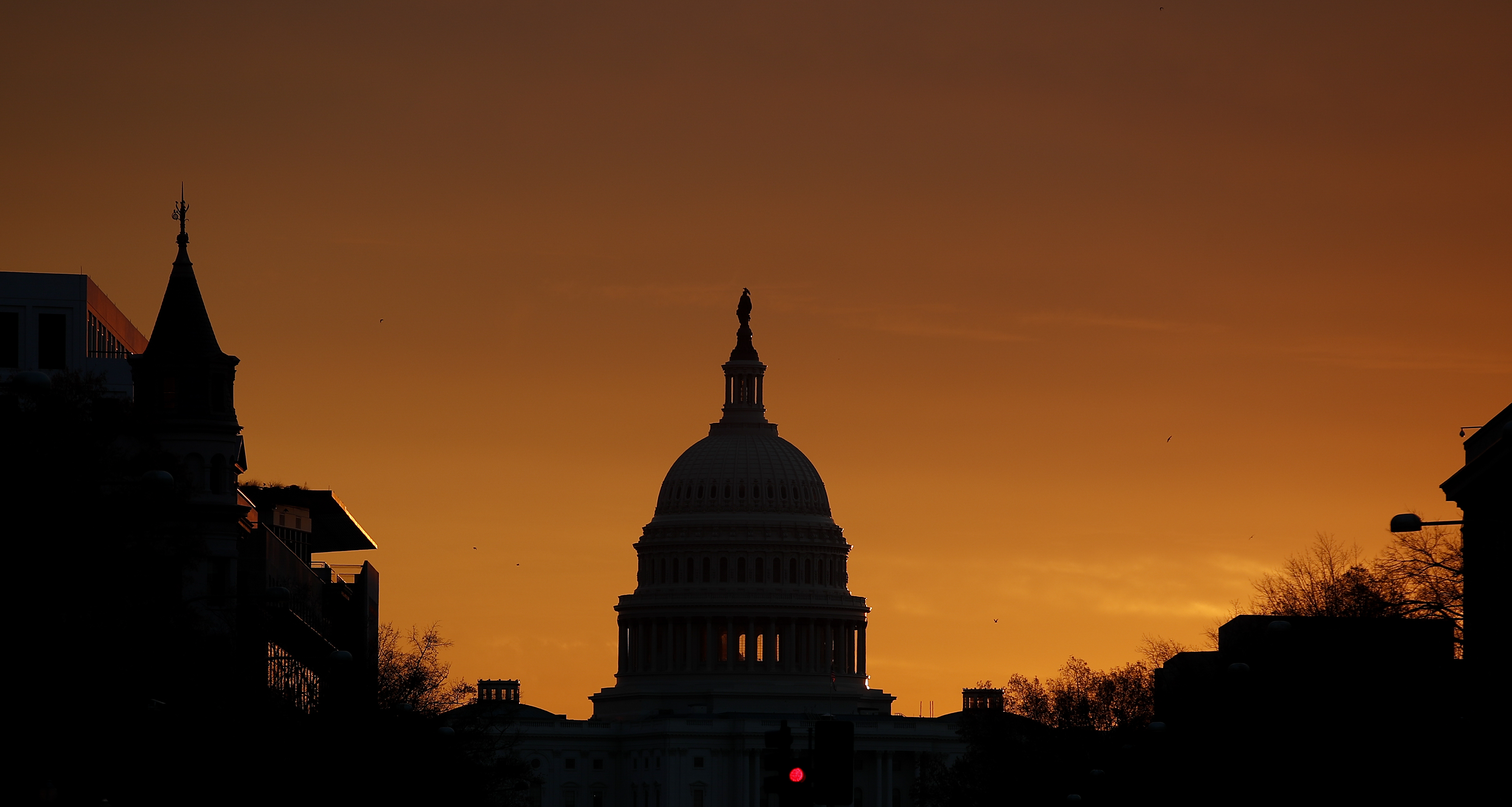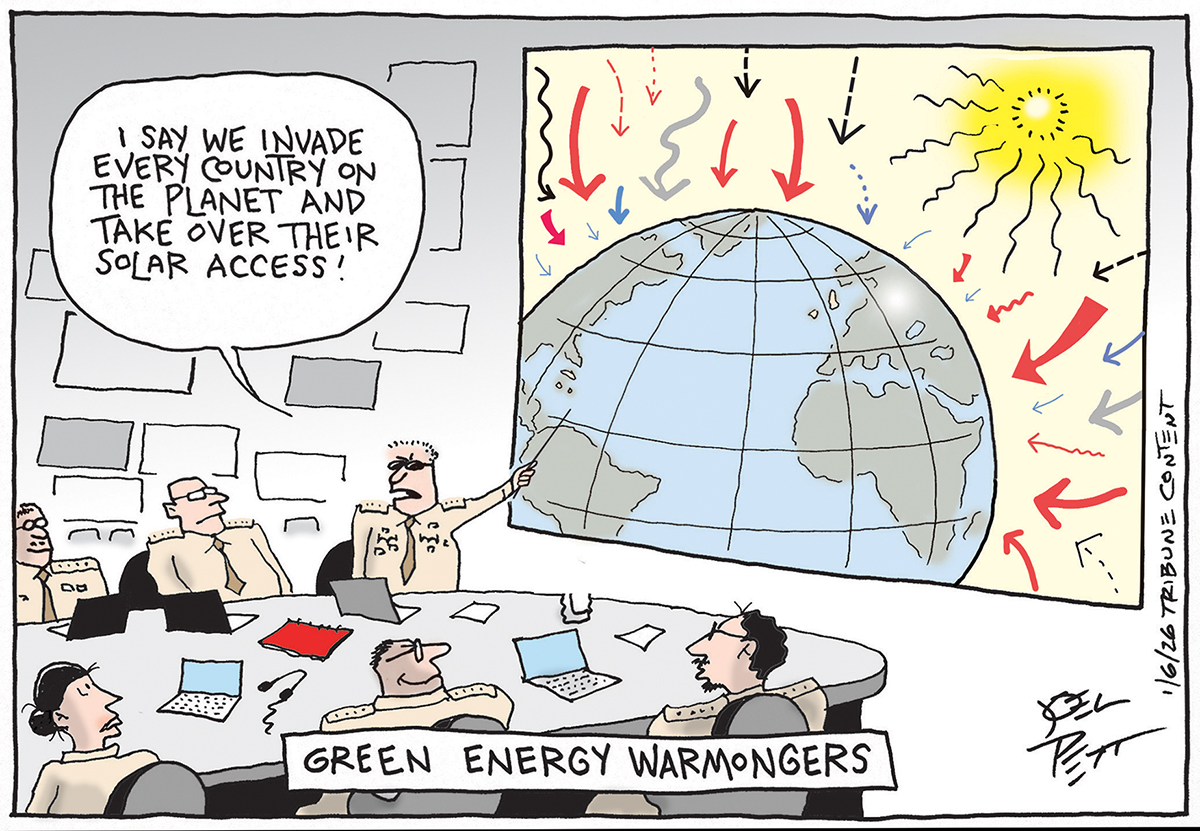Trump's budget reveals the GOP's priorities in all their hideous glory
This is what Republicans actually believe in


The saying "a budget is a moral document" has become almost a cliche, something that people repeat whenever anyone assembles a budget for the federal government. Interestingly enough, it's usually liberals who say it, while conservatives aren't particularly eager to cast their budgetary choices in the light of morality. There's a good reason for that.
But before we get to that reason, let's take a look at the budget the White House released on Monday. It should be said that this budget won't actually become law — Congress writes budgets, and Democrats and Republicans just made an agreement that will cover government spending for the next two years — but the president's budget is always a window into the administration's thinking and priorities. In this case, that window opens on an ugly place, where the world the Republican Party would like to see is laid out in all its hideous glory.
Let's take a look at just some of the highlights. The budget would do the following:
The Week
Escape your echo chamber. Get the facts behind the news, plus analysis from multiple perspectives.

Sign up for The Week's Free Newsletters
From our morning news briefing to a weekly Good News Newsletter, get the best of The Week delivered directly to your inbox.
From our morning news briefing to a weekly Good News Newsletter, get the best of The Week delivered directly to your inbox.
- Spend $716 billion this year on the military
- Spend $18 billion over two years to build a border wall
- Cut $554 billion from Medicare over 10 years
- Cut $250 billion from Medicaid over 10 years
- Cut $214 billion from food stamps over 10 years
- Cut the EPA's budget by 34 percent
- Cut the Department of Housing and Urban Development budget by 14 percent, including eliminating the fund that pays for capital repairs to public housing
- Eliminate the Corporation for Public Broadcasting, which provides funding to PBS and NPR
- Eliminate the National Endowment for the Arts and the National Endowment for the Humanities
- Eliminate the Legal Services Corporation, which provides legal help to poor Americans
- Eliminate the Low Income Home Energy Assistance Program, which ensures that poor Americans don't freeze to death in the winter
- Cut funding for Amtrak in half
- Eliminate ARPA-E, which does cutting-edge research on energy technology
Now tell me those aren't moral choices.
If you're looking for a silver lining, you might observe that unlike prior Republican budgets, this one does not pretend that it will be balanced in 10 years. Which might sound like some admirable candor, were it not for the fact that this one is as full of magic asterisks, fairy dust, and unicorn kisses as ever. Most importantly, it assumes that GDP growth will quickly top 3 percent then stay that high through 2024, a stretch unlike anything we've seen in decades. That allows them to say they aren't ballooning the deficit as much as they actually would.
The budget also includes items like $139 billion in savings achieved by reducing "improper payments government wide." It's almost impossible to tell what they're talking about, but it sounds a lot like what we used to call "waste, fraud, and abuse," which is shorthand for "we can reduce the budget by huge amounts without cutting anything anybody actually likes." It never seemed to work out, not because there isn't waste, fraud, and abuse in the government; there is, just as there is in any large organization, and the U.S. government is the largest organization on Earth. No, the problem has always been that it's hard to ferret out, and what we can find never amounts to anywhere near what people hope.
To get back to the question of the moral beliefs embedded in a budget like this one, that's language Republicans would prefer to avoid. They'd rather say that we have to set priorities when we have finite resources, and though we'd like to do everything, there are some things we just can't do.
A free daily email with the biggest news stories of the day – and the best features from TheWeek.com
The problem with this line of argument is that Republicans don't treat resources as finite when they involve programs they like. We spend nearly as much on our military as every other country in the world combined — worldwide military spending in 2016 was estimated at a little under $1.7 trillion, and this year we will be spending over $700 billion. No Republican ever says, "We'd like to spend more on the military, but as a country we just can't afford it." Their attitude is always more, more, more, and if we have to increase the deficit to do it, that's what we'll do.
Yet when it comes to domestic programs, they don their green eyeshades and say somberly, "We'd love to, but the money just isn't there." And that, of course, comes after they just passed a $1.5 trillion tax cut, most of the benefits of which went to corporations and the wealthy. So when they say "we can't afford that," what they actually mean is, "we don't want to do that at all, but we're going to pretend it's because we can't afford it."
That deception is necessary because so many of the programs Republicans want to cut are tremendously popular. Only a few of them will say outright that government shouldn't provide health insurance to people, but that's what their philosophy dictates. So every year they try to chip away at Medicare and Medicaid, mounting the occasional frontal assault only to retreat when the public gets wind of it and recoils in horror.
But look back at that list, and consider what kind of country Republicans are trying to create. It's one where everyone's on their own and everyone's out for themselves, where we don't expect much from our government apart from building bombs and building walls.
Very few Americans will slog through the budget documents, and not that many will even read detailed news articles about them; we all know it isn't the jazziest of subjects. But if you want to know what this administration and the party it represents believe, it's all there in black and white.
Paul Waldman is a senior writer with The American Prospect magazine and a blogger for The Washington Post. His writing has appeared in dozens of newspapers, magazines, and web sites, and he is the author or co-author of four books on media and politics.
-
 Political cartoons for January 11
Political cartoons for January 11Cartoons Sunday’s political cartoons include green energy, a simple plan, and more
-
 The launch of the world’s first weight-loss pill
The launch of the world’s first weight-loss pillSpeed Read Novo Nordisk and Eli Lilly have been racing to release the first GLP-1 pill
-
 Six sensational hotels to discover in 2026
Six sensational hotels to discover in 2026The Week Recommends From a rainforest lodge to a fashionable address in Manhattan – here are six hotels that travel journalists recommend for this year
-
 The billionaires’ wealth tax: a catastrophe for California?
The billionaires’ wealth tax: a catastrophe for California?Talking Point Peter Thiel and Larry Page preparing to change state residency
-
 Bari Weiss’ ‘60 Minutes’ scandal is about more than one report
Bari Weiss’ ‘60 Minutes’ scandal is about more than one reportIN THE SPOTLIGHT By blocking an approved segment on a controversial prison holding US deportees in El Salvador, the editor-in-chief of CBS News has become the main story
-
 Has Zohran Mamdani shown the Democrats how to win again?
Has Zohran Mamdani shown the Democrats how to win again?Today’s Big Question New York City mayoral election touted as victory for left-wing populists but moderate centrist wins elsewhere present more complex path for Democratic Party
-
 Millions turn out for anti-Trump ‘No Kings’ rallies
Millions turn out for anti-Trump ‘No Kings’ ralliesSpeed Read An estimated 7 million people participated, 2 million more than at the first ‘No Kings’ protest in June
-
 Ghislaine Maxwell: angling for a Trump pardon
Ghislaine Maxwell: angling for a Trump pardonTalking Point Convicted sex trafficker's testimony could shed new light on president's links to Jeffrey Epstein
-
 The last words and final moments of 40 presidents
The last words and final moments of 40 presidentsThe Explainer Some are eloquent quotes worthy of the holders of the highest office in the nation, and others... aren't
-
 The JFK files: the truth at last?
The JFK files: the truth at last?In The Spotlight More than 64,000 previously classified documents relating the 1963 assassination of John F. Kennedy have been released by the Trump administration
-
 'Seriously, not literally': how should the world take Donald Trump?
'Seriously, not literally': how should the world take Donald Trump?Today's big question White House rhetoric and reality look likely to become increasingly blurred
